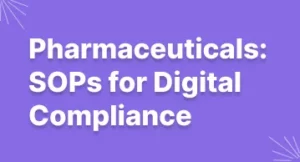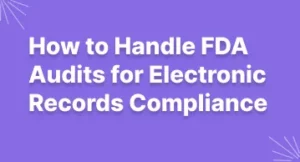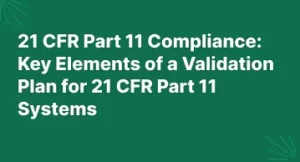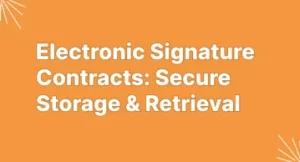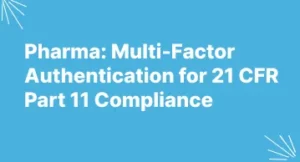Electronic Signature Contracts: Why Compliance Matters
Introduction
In today’s digital landscape, businesses and organizations are constantly evolving their record-keeping processes. While paper-based records have been the standard for centuries, electronic records are rapidly taking over due to their efficiency, security, and compliance benefits. However, the transition from paper to electronic records isn’t just about convenience — it’s a strategic necessity for ensuring regulatory compliance, particularly when handling Electronic Signature Contracts, Sales Agreements, and Informed Consent Forms.
This blog explores the key differences between electronic and paper-based records, the compliance challenges associated with each, and why businesses must prioritize Electronic Signature Contracts for secure and legally binding documentation.
Understanding Electronic and Paper-Based Records
What are Paper-Based Records?
Paper-based records are physical documents stored in files, cabinets, or archives. They have traditionally been used for legal, financial, and administrative purposes.
Challenges of Paper –Based Records:
- Storage Limitations – Requires physical space, making it costly and difficult to manage.
- Security Vulnerabilities – Susceptible to loss, theft, or damage from fire, water, or mishandling.
- Restricted Accessibility – Employees must be physically present to retrieve records.
- Slow Processing Times – Manual signing, approvals, and documentation can delay workflows.
What are Electronic Records?
Electronic records are digitally stored documents that can be accessed, modified, and signed electronically. These records are widely used in Electronic Signature Contracts, Sales Agreements, and Informed Consent Forms across industries.
Benefits of Electronic Records:
- Remote Access –Stored in secure digital systems, accessible from anywhere.
- Enhanced Security Measures – Encrypted storage and access control prevent unauthorized modifications.
- Streamlined Efficiency – Faster processing and automated workflows.
- Stronger Regulatory Compliance – Meets global standards for digital transactions and legal agreements.
Learn more about the compliance benefits of electronic records
Compliance Challenges in Record Management
Whether using paper or electronic records, compliance with industry regulations is crucial. Different industries, such as healthcare, finance, and legal sectors, have stringent rules governing document management.
Paper-Based Record Compliance Issues
- Compromised Data Integrity – Paper-based documents can be altered, lost, or damaged.
- Audit Trail Limitations – Difficult to track changes and approvals.
- Non-Standardized Signatures – Paper-based signatures can be forged or disputed.
- Regulatory Gaps – Maintaining compliance requires additional security measures like physical locks and surveillance.
Electronic Record Compliance Considerations
- Legally Valid Digital Signatures & Authentication – Ensuring that Electronic Signature Contracts meet legal standards.
- Robust Audit Trails – Providing traceability for approvals and modifications.
- Strong Data Encryption & Access Control – Preventing unauthorized access and ensuring document security.
- Adherence to Global Regulatory Standards – Compliance with laws such as 21 CFR Part 11, eIDAS, and UETA.
Explore how eSignatures meet regulatory compliance
Why Compliance Matters: The Legal Perspective
Regulatory Requirements for Electronic Records
Organizations must adhere to various regulations to ensure their electronic records are legally binding. Some key laws include:
- Electronic Signatures in Global and National Commerce Act (ESIGN Act, USA) – Grants electronic signatures the same legal standing as handwritten signatures.
- Uniform Electronic Transactions Act (UETA) – Establishes guidelines for electronic transactions and record-keeping.
- General Data Protection Regulation (GDPR, Europe) – Ensures data privacy and protection in electronic record storage and processing.
- Health Insurance Portability and Accountability Act (HIPAA, USA) – Governs the security of electronic health records (EHRs) and Informed Consent Forms.
How Electronic Records Improve Compliance
- Real-Time Verification – Digital records ensure signatures are authenticated instantly.
- Automated Audit Trails – Every action is tracked and time-stamped.
- Fraud Prevention – Encryption and security protocols safeguard records from tampering.
- Standardized Formats – Electronic records follow structured compliance guidelines, reducing legal risks.
How MSB Docs Ensures Compliance with Electronic Records
MSB Docs provides a secure, compliant, and efficient solution for managing Electronic Signature Contracts, Sales Agreements, and Informed Consent Forms. Here’s how:
1. Secure & Legally Binding Electronic Signatures
- Multi-factor authentication ensures document integrity.
- Meets global compliance requirements such as 21 CFR Part 11, eIDAS, ESIGN Act, and UETA.
- Globally recognized across industries as legally binding.
2. Automated Audit Trails & Document Tracking
Companies that fail to meet 21 CFR Part 11 compliance requirements can face serious consequences, including:
- Real-time monitoring of approvals, edits, and sign-offs.
- Immutable, time-stamped audit logs ready for regulatory inspections.
3. Advanced Access Controls & Data Security
- Role-based access controls restrict unauthorized changes.
- End-to-end encryption protocols ensure the confidentiality and integrity of stored documents.
4. Seamless Integration with Business Workflows
- Supports compliance-driven indudstries such as pharmaceuticals, finance, and legal services.
- Ensures smooth integration with existing systems with minimal disruption.
Conclusion: The Future is Digital
The debate between electronic and paper records is no longer just about convenience — it is a necessity for regulatory compliance, security, and efficiency. Electronic Signature Contracts provide businesses with legally binding, secure, and auditable documentation, reducing risks and enhancing productivity.
With solutions like MSB Docs, organizations can seamlessly transition to digital records while meeting industry compliance standards. Make the switch today and future-proof your document management system.
Learn more about how MSB Docs can help you transition to electronic records.


